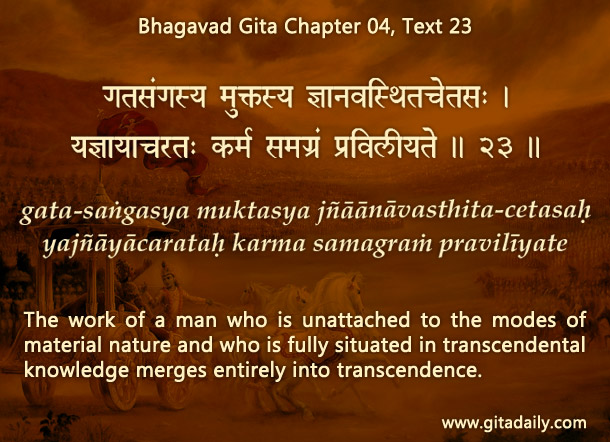In Vedic wisdom, two main paths are the path of action, karma-yoga, and the path of knowledge, jnana-yoga.
Gita wisdom explains how the strengths of both these paths are integrated in bhakti-yoga, which is the path of not just devotion, but of devotion that integrates action and knowledge.
Devotion brings knowledge into action: The Gita explains how action can be infused with knowledge so that it leads not to bondage but to liberation. It (04.23) urges us to act in knowledge with the mood of sacrifice. Later it (09.24) reveals the object of sacrifice to be Krishna. And it (18.57) conclusively integrates both these insights when it urges us to use our intelligence for offering our work to Krishna. Such intellectually illumined and devotionally directed actions are liberating.
Devotion brings action into knowledge: The path of knowledge holds that because action causes bondage, we should give up all action to become free from bondage. But the Gita (03.05) declares that staying inactive as a sustained manner of living is impossible. The Gita (05.06) further asserts that mere renunciation without action breeds misery, whereas action spiritualized by yoga makes liberation joyfully attainable. And conclusively (18.54) it conveys how jnana-yoga culminates not in inaction, but in pure devotion and its associated selfless action: After jnana-yogis have attained the perfection of equal vision, they attain pure devotion. Thus, devotional action comprises the post-graduation stage of jnana-yoga.
When our action is thus guided by knowledge and our knowledge is enlivened by action and when both are permeated with the intention of love – love for the Supreme and love for all living beings in relationship with the Supreme – we can naturally and efficaciously move towards life’s supreme perfection.
As bhakti-yoga synthesizes and synergizes the strengths of both karma-yoga and jnana-yoga, it embodies the perfection of yoga.
Explanation of article:


Brilliant!